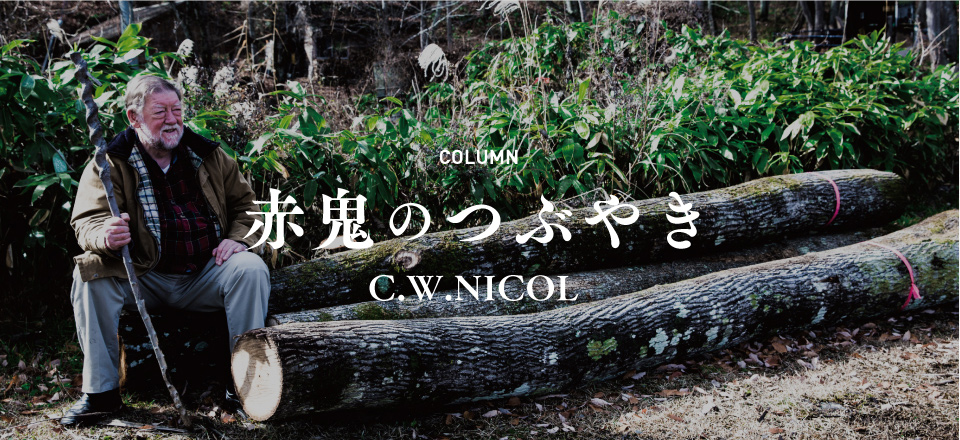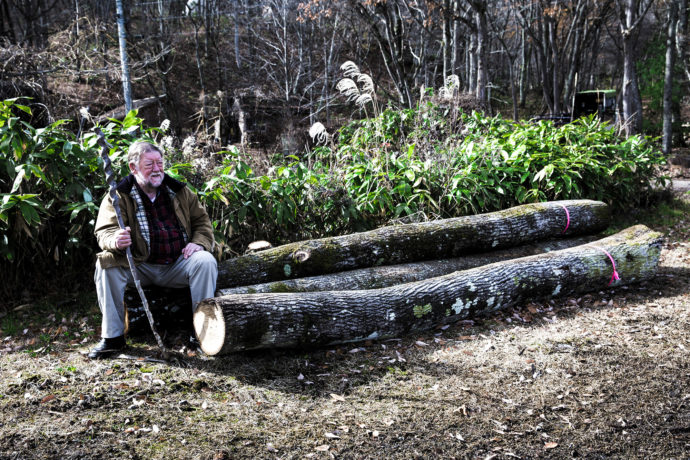Column
【赤鬼のつぶやき C.W.ニコル】ヤナギ(Willow)
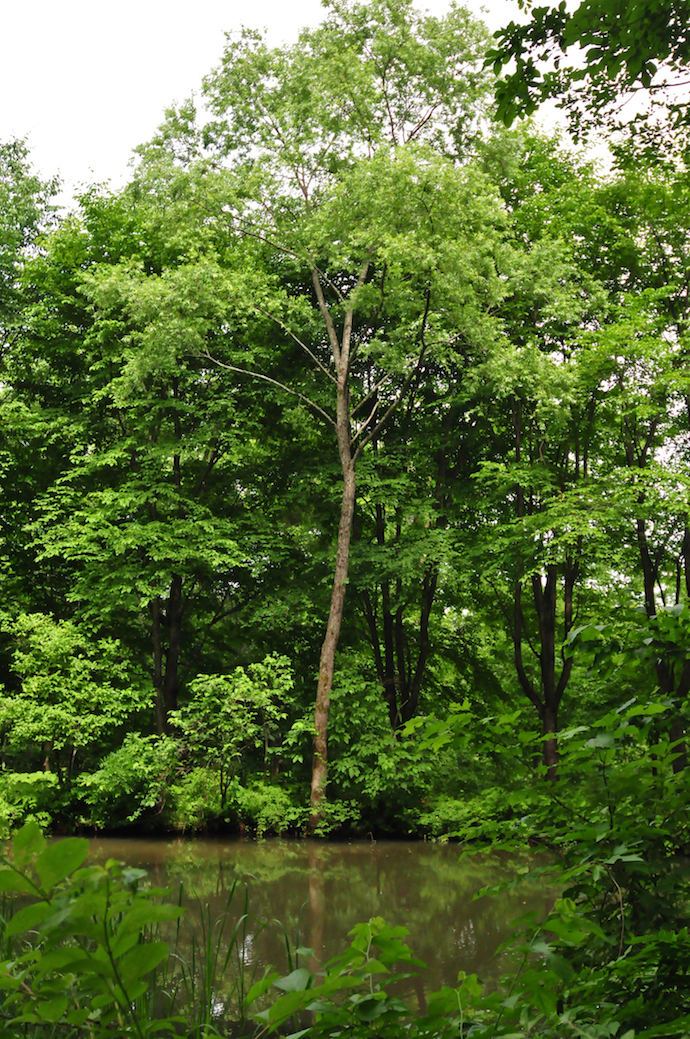
ヤナギは、水辺のそばであれば世界のいたるところで見かけることができるでしょう。アファンの森では、池の岸を固めて安定させるためにこの木を植えました。日本ではどこでもよく見かけることもあって、たくさんの昔話、特に男女の関係や幽霊にまつわるものが残されています。約400品種が確認されていて、背が高くなる品種から、地面を這うように育つホッキョクヤナギのようなものもあります。根を浅く張ることで永久凍土にも適応していて、葉は長い毛で覆われることによって寒さをしのいでいます。
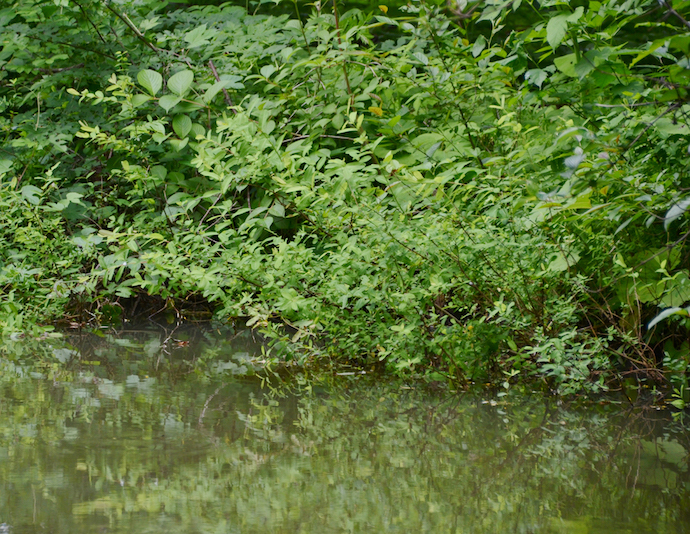
英国に暮らしていた子ども時代には、ヤナギの木はカワウソに関係があると信じていました。
枝を刈り込んだヤナギが小川のほとりに沿って植えられているのが、英国ではおなじみの風景です。伸びすぎてしまった細い枝や、地面に近いところに育つ種類の枝でバスケットや魚をつかまえる仕掛けを作ったり、柵にすることもあります。丈夫で、軽く、さらにしなやかで曲げやすい素材が必要なところではとても重宝されるのです。根も非常に丈夫で折れにくく、水の中でも成長する特徴を活かして、小さな魚が他の水生生物から捕食されないように守る囲いにも使います。川辺のヤナギは、百年は持ちこたえるため、木の幹に空洞ができるくらいに成長すれば、カワウソが子育てをするのにぴったりの隠れ場所になります。
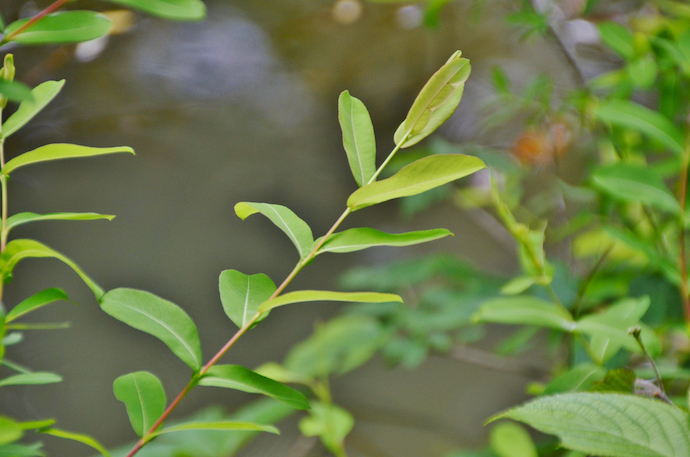
ヤナギという意味のある古英語は「サロー(Sallow)」で、「サリクス(salix)」が語源になっています。ヤナギの幹にサリチル酸が含まれていて、アスピリンの原料になっていたこともあります。ヤナギの幹や葉、枝は、疼痛など痛みをやわらげるために用いられてきたのです。
個体によって雌雄にわかれている種類の木でもあります。春になって、雌のヤナギが花の穂を成長させると「ネコヤナギ」になります。まるで猫の尻尾のようにフサフサしているところからこう呼ばれています。そしてアブラムシもこの木をすみかにします、その汁を吸うアリもたくさん集まります。チョウの仲間も寄って来ます。
材はとてもやわらかくて強く、よくしなるので、クリケット用のバット、道具の持ち手、笛、紙や、タンニン、繩や糸の材料になっています。ヤナギを燃やした炭は土壌の質を良くしますし、銃に着火する火薬としても最適です。
スウェーデンやアメリカ、英国ではバイオマス燃料としても注目を集めています。ヤナギの枝を切るとそこからまた成長を始める、強い成長力があるからです。
わたしは地下に水脈があるとわかる力があって、これは祖父譲りの能力です。建物の中にいても、見えないところにある水道管から水が漏れていると気がつきます。アファンでも井戸を掘る時にどこを掘れば良いのか探したことがあります、この力を維持するために、細く先が分かれたヤナギの枝を折って土に挿し、静かに感謝の祈りを捧げる儀式をしています。この「才能」を見たい人がいれば、いつもお見せしています。祖父も井戸を掘りたい人に頼まれたり、地下に埋まった水道管の漏れやつまりを探し当てることに力を使っていました。わたしにとって、ヤナギの木がスピリチュアルな意味でも、他のどの木よりも水に縁の深い樹木だと感じられるのは、この習慣のためだと思います。
2017年7月
C.W. ニコル
写真提供:C.W.ニコル・アファンの森財団
WILLOW
If you are close to water, pretty well anywhere in the world, you will probably find willows. They grow naturally in our Afan woods and we also planted them to stabilize the banks of our big pond. They are very common in Japan, associated with many tales of romance and ghosts. There are at least 400 species of willow, some growing large and tall, others, like the arctic willow, grow close to the ground, with a shallow root system adapted to permafrost, and leaves with long fuzzy hairs to combat the cold.
As a boy in Britain, I associated the willow with otters. A very common sight in Britain are short, thick pollarded willows along stream banks. The thin willow branches growing from pollards or the closer to the ground coppiced willows are used for weaving baskets, fish traps, fences and so many other thing in which tough, light, pliant material is needed. Willow roots are extremely strong and pliant and can grow actually in the water, making a safe haven for small fish and other aquatic creatures. Why otters? Stream bank willow pollards can live for a hundred of years, and the trunks become hollow, making ideal dens for otters to raise their young.
An old English word for willow is ‘sallow’ originating from the Latin ‘salix.’ Willows have a watery bark containing salicylic acid, the forerunner for the medicine ‘aspirin.’ In many cultures willow bark, leaves or twigs were used to relieve aches and pains.
Willows have both male and female trees. The female willows grow catkins in spring and are called ‘pussy willows’ because the catkins look like tiny furry cat’s tails. Willows make a home for aphids, to which ants come to get the aphids sweet nectar. They are also home to certain species of butterfly.
Willow wood is soft, tough and very pliant is used to make so many kinds of things such as cricket bats, toys, furniture, tool handles, flutes, and veneer as well as paper, tannin, ropes and string. Willow charcoal can be ground very fine and makes the best gunpowder.
In many countries, like Sweden, America and Britain, fast-growing willows are being propagated as a biomass fuel plant. Willows are very easy to grow from cuttings.
I inherited the ability to dowse for underground water, and I use this ability even inside building to search for hidden water pipes or leaks. I dowsed for underground water in Afan, assuring the right place to dig a watercourse. In order to dowse I cut a thin, forked willow branch, and after I use the willow cutting I always obey the ritual custom of sticking it back in the ground with a silent prayer of thanks. I can demonstrate this ‘talent’ to anybody who wants to see. My grandfather used to dowse in order to advise on digging wells or to find leaks or blockages in underground field pipes. Thus it is to me that the willow is most strongly, even spiritually, associated with water.
C.W.Nicol
June 14. 2017
C.W.ニコル
作家・1940年イギリス南ウェールズ生まれ。1995年日本国籍取得。カナダ水産調査局北極生物研究所の技官・環境局の環境問題緊急対策官やエチオピアのシミエン山岳国立公園の公園長など世界各地で環境保護活動を行い、1980年から長野県在住。1984年から荒れ果てた里山を購入し「アファンの森」と名づけ、森の再生活動を始める。2005年、その活動が認められエリザベス女王から名誉大英勲章を賜る。2011年、2016年に天皇、皇后両陛下がアファンの森をご視察された。


